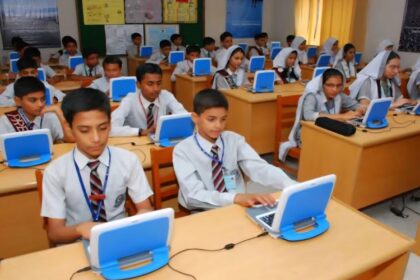The Space and Upper Atmosphere Research Commission on Wednesday inaugurated the first Space Applications and Research Center in Gilgit-Baltistan.
Attending the ceremony as the chief guest, Gulbar Khan, the chief minister of Gilgit-Baltistan, hailed the opening of the center as a transformative step for the region.
This facility aims to resolve important environmental and social problems in the mountainous region. As reported by the state news agency, the center will focus on main concerns like climate change, melting of glaciers, and the management of water resources. This facility will become a key component in disaster management and preserving biodiversity in the region.
“The facility will function as a hub for innovation and research,” said Muhammad Yousuf Khan, the chairman of the space commission. He said the center’s satellite monitoring would also offer important information about the region’s environmental issues. Using space technology, the center can better monitor glaciers, assess landslide risks, and predict extreme weather patterns, he said.
Yousuf Khan said the local population would also benefit from the launch of the center, as it would create jobs, build capacity, and lead to development initiatives. “The center will help protect the environment while offering employment and learning opportunities for the youth of the region,” he stated.
Addressing the participants, Gulbar Khan said the center was a much-needed step toward tackling the region’s growing environmental concerns. He pointed out that the region was at a great risk from the impacts of climate change, as glacier melting posed a serious threat to water resources and local populations. He highlighted that the region had faced frequent landslides and floods, along with earthquakes, and that the monitoring systems at the center would deliver essential data to reduce those risks.
He called on local leaders to work closely with the space commission to maximize the use of the center’s resources for regional development. He pointed out that integrating space technology into various government ministries could help solve the unique problems facing the region.
Scientists, researchers, environmentalists, and students attended the session, and were all eager to learn about the center’s role in addressing the region’s environmental crises.
In partnership with the Gilgit-Baltistan government and international research organizations, the company will focus on disaster management, environmental conservation, and socio-economic development.
The center will also play an important role in the commission’s Space Education and Awareness Drive, which aims at inspiring young minds with its dynamic programs and research opportunities.
The center is poised to act as a guiding light in scientific achievement, and encourage regional and international development in space technology. It also aims to guide Gilgit-Baltistan and Pakistan through the difficulties posed by a rapidly changing environment.
















